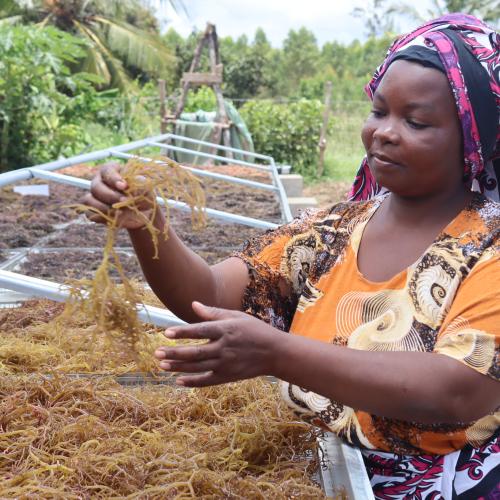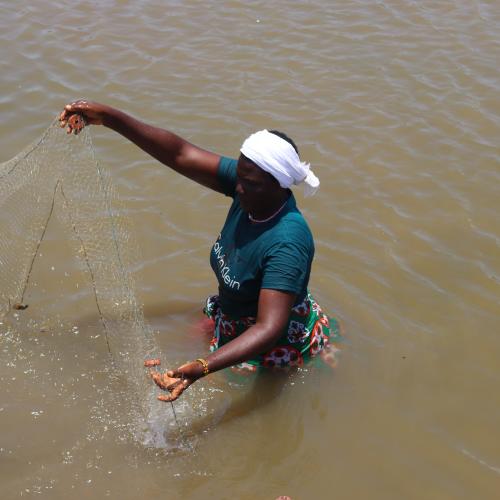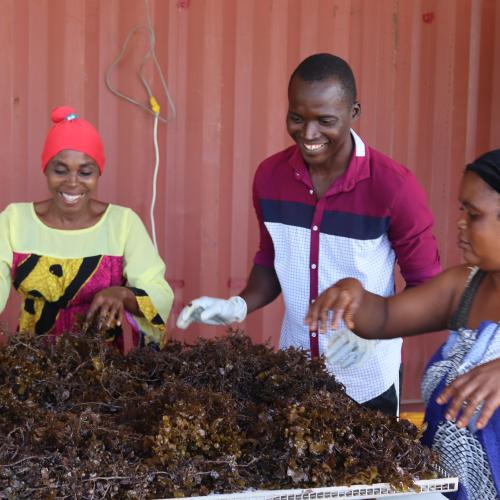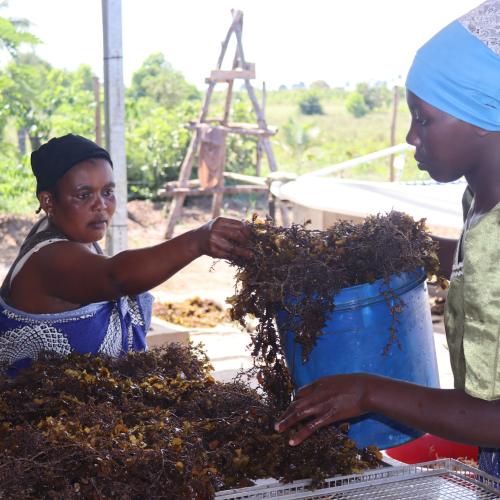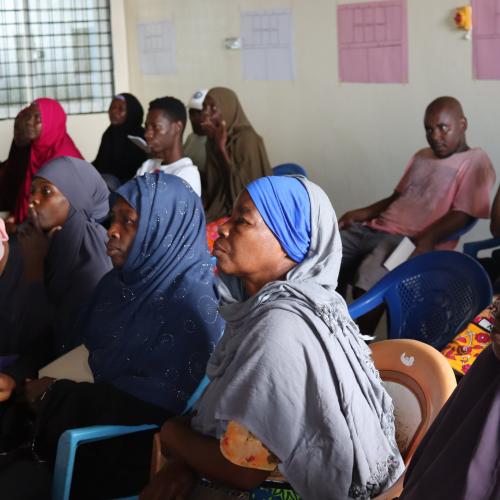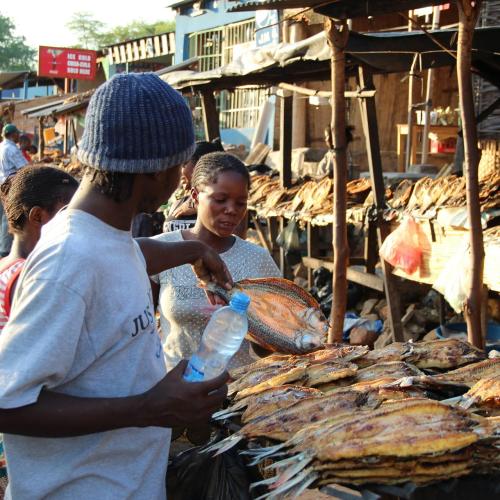Aquaculture of seaweeds and fish: Opportunities for blue economic empowerment and Covid-19 resilience in Kenya
Context
The structural gender inequalities in Kenya’s coastal fisheries communities have led to women disproportionately suffering a steep decline in business opportunities, higher losses and diminishing returns. This is because women have limited access to ocean resources, feel insecure at sea, lack the skills and capital to invest in fishing vessels and post-harvest handling facilities and suffer social pressure and discrimination from the hierarchical power dynamics in their communities.
This research project will contribute to knowledge on environmental, social and economic sustainability of integrated multi-trophic aquaculture (IMTA), opportunities for fish farming and seaweed production among women. The project will disseminate research findings, policy recommendations and IMTA models that are gender-transformative and scalable. The project is anchored in SDG 5 on the role of gender equality in development processes and Vision 2030 - the Kenya government's development blueprint.
Furthermore, investing in a low-carbon blue economy holds solutions for rebuilding a more resilient, sustainable and equitable post-Covid world. IMTA could help to alleviate climate change and socio-economic challenges because it is considered a resilient, low-carbon and environmentally friendly and economically sustainable innovation.
Objectives
This project aims to contribute to alleviating the barriers for the empowerment of fisher women in Kenya’s coastal region through adoption of IMTA of seaweeds and fish for improved livelihoods and resilience, based on four objectives:
- To provide state-of-the-art information for equitable and sustainable adoption of fish-seaweeds IMTA among coastal fisher communities in Kenya.
- To provide options for enabling policies, technology uptake, and governance frameworks for IMTA adoption and women fisher-folk empowerment.
- To design, set-up, test and optimise gender transformative fish-seaweeds IMTA solutions for the socio-economic empowerment, Covid-19 and climate change resilience of fisher women.
- To promote knowledge translation, dissemination and learning for IMTA systems upscaling, climate change and Covid-19 response strategies for the communities in Kwale and Kilifi counties.
Partners
The African Centre for Technology Studies (ACTS) is leading the project in collaboration with the following partners:
- Kenya Marine and Fisheries Research Institute
- Kenya Industrial Research and Development Institute
- C-Weed Corporation
- Bahari CBO Network
- Kenyatta University
Activities
The project will undertake the following activities:
- Profiling and documenting gender responsive challenges, potentials and opportunities
Will identify barriers and solutions for the equitable adoption of fish-seaweeds IMTA, and adaptive responses to uncertainties of Covid-19 and climate. This WP will produce a journal paper, practice brief and working paper.
- Mapping socio-technical pathways
Will identify socio-technical gaps critical for the adoption and upscaling of IMTA, and Institutional, organisational, policy and governance configurations. A policy brief series and a working paper will be generated
- Optimising gender transformative IMTA
Will optimise set-up and value chain scenarios for gender transformative IMTA and will produce toolkits, manuals, a design-based journal paper and operational business and investment models
- Promoting knowledge translation, dissemination and learning
Will dwell on research engagement, transformative technologies and business models and produce information briefs, training manuals, incubation frameworks and technical reports.
Read more on the project website.
Contact
Dr. Joel Onyango, ACTS
blue-economy@acts-net.org


